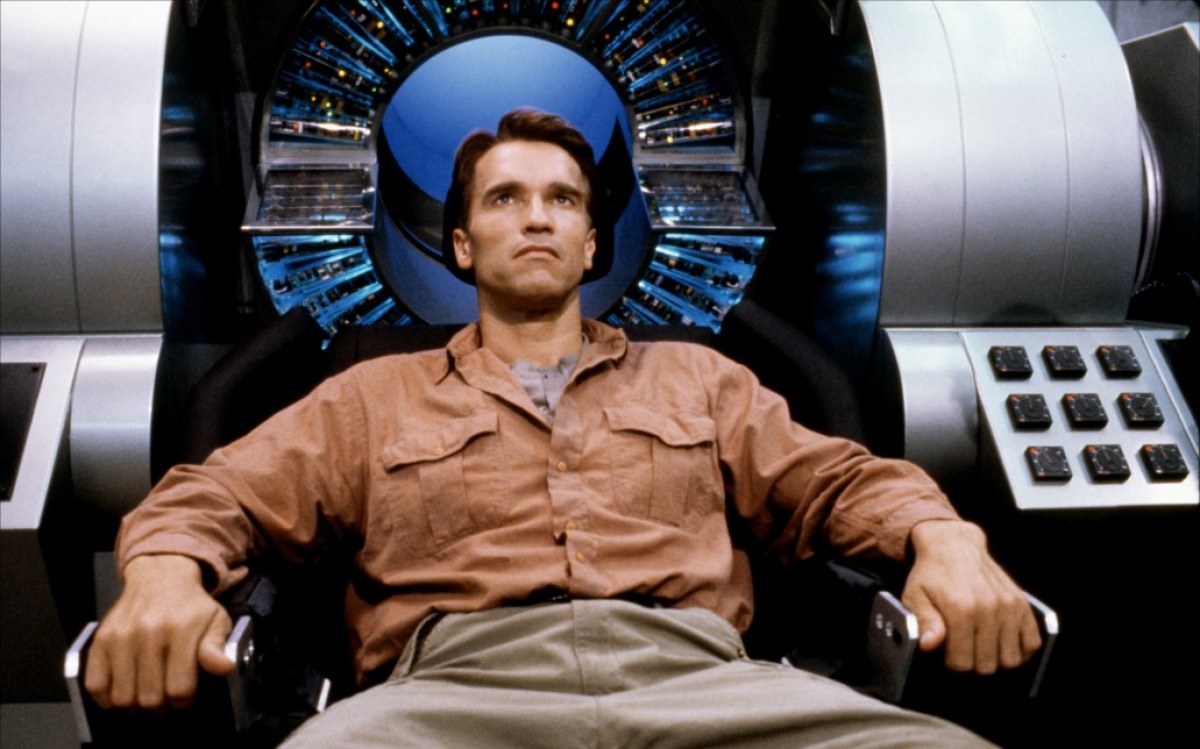Amazing, now, to think of the start Paul Verhoeven had to his American career, with Robocop, Total Recall and Basic Instinct - all colossal box-office successes, all pushing the boundaries of screen representation in some way or another, all of them B-movies with A-list budgets. At the centre of this trash trilogy is Doug Quaid (Arnold Schwarzenegger), an ordinary guy with an apparently loving wife and steady job. Despite all the perks of a futuristic Earth, Doug Quaid is dissatisfied with his life; he wants to get away from it all, and has his heart set on a trip to the recently colonised Mars. Philip K. Dick's source story, "We Can Remember It For You Wholesale", proposed that, in the future, rather than face the fuss of travel agents and long-haul flights, would-be holidaymakers could simply go to a facility that implants memories of any requested trip within the brain. During Doug's procedure, however, something goes awry: it turns out that Quaid isn't an ordinary guy being implanted with the globetrotting mental snaps of a secret agent, but a double agent who's had his memory erased to allow him to live the life of an ordinary guy. Only the erasure was incomplete - which explains Doug's easy facility with necksnapping - and there are people (most notably, the great Michael Ironside as a corporate henchman) who want our hero dead for what he knows but cannot remember.
Verhoeven here blends espionage thrills - it's essentially the same plot as North by North-West and The Bourne Identity, beamed a century into the future - with the midlife crisis fantasy of a workaday schmo who gets to kick ass and have two women fighting over him: "you're the best assignment I ever had," pants Sharon Stone as Quaid's wife. The result remains one of the wittier adaptations of Dick's work, revelling in the spectacle provided by Rob Bottin's prosthetic effects team and the best production design 1990 money could buy. It's exceptionally pacy entertainment, and Verhoeven surrounds an inspired (if only implied) central gag - that, years from now, Arnie will be the closest thing to real we'll have - with a succession of unreal sights: Arnie being beaten up by a girl (or Sharon Stone, which almost counts); Arnie in drag (this just after he leaves a video message for himself, insistent that he's been "playing for the wrong team"); Arnie being propositioned by first a woman with three breasts, then a midget in pink lingerie.
(May 2007)
Total Recall screens on ITV2 this Tuesday at 11pm, and is re-released in cinemas from Friday.





